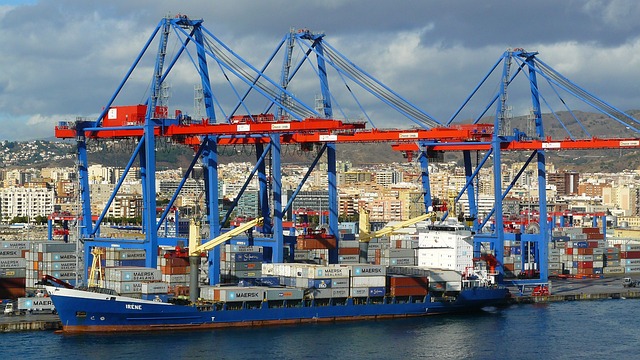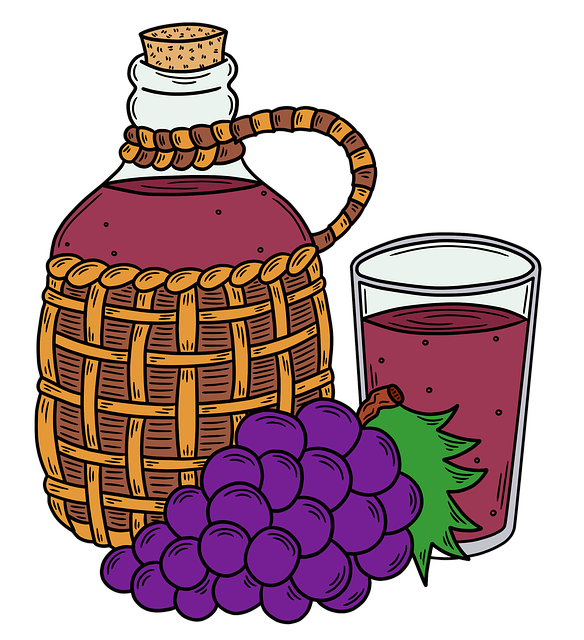UK businesses engaging in international trade must ensure their customs and trade documents are accurately translated to comply with legal requirements. This is critical for avoiding delays or penalties when goods cross borders post-Brexit. Translations of key documents such as commercial invoices, certificates of origin, and packing lists must be precise and certified by professionally accredited translators from recognized bodies like the Institute of Translation and Interpreting (ITI), the Chartered Institute of Linguists (CIOL), or the Association of Translation Companies (ATC). Utilizing UK translation services that specialize in legal and technical language ensures that all translations meet the standards set by Her Majesty's Revenue and Customs (HMRC) and other international regulatory bodies. This not only streamlines trade operations but also significantly reduces the risk of complications or disputes at customs, making UK translation services an essential tool for maintaining efficient international commerce.
Navigating the complexities of international trade necessitates meticulous attention to detail, particularly in document authentication. This article delves into the critical role of certified translations within UK trade processes, shedding light on the legal framework that underpins their importance. We explore how Customs and Trade Documents UK translation services facilitate seamless commerce across borders by providing accurate language translations required for compliance. From identifying which documents need to be translated to offering strategies for effective engagement with certified translation providers, this piece is an indispensable guide for businesses looking to optimise their trade operations and adhere to UK legal standards.
- Understanding the Necessity of Certified Translations for UK Trade Documents
- The Role of Customs and Trade Documents UK Translation Services Play in International Commerce
- The Legal Framework Governing Certified Translations in the UK Trade Context
- Identifying the Types of Documents Requiring Certified Translations for UK Trade
- How to Engage with Certified Translation Services in the UK for Trade Efficiency
- Navigating the Challenges and Best Practices in Obtaining Certified Translations for UK Trade
Understanding the Necessity of Certified Translations for UK Trade Documents

When engaging in trade within the United Kingdom, the accuracy and authenticity of documentation are paramount. Customs and Trade Documents UK translation services play a crucial role in facilitating seamless cross-border transactions by ensuring that all written materials are accurately translated into the required language. This is not just a matter of linguistic equivalence but a legal necessity for official procedures, where certified translations provide the assurance that documentation meets the standards set by both the UK’s national authorities and international bodies. These translations are officially endorsed by a qualified translator or translation agency, attesting to their exactness and reliability. This endorsement often includes a statement of accuracy, along with the translator’s signature and stamp or embossed seal, making them legally binding and acceptable for submission alongside UK trade documents to customs and other regulatory entities. Utilizing professional UK translation services for customs and trade documents is essential for avoiding delays, ensuring compliance, and maintaining the integrity of international business dealings.
The Role of Customs and Trade Documents UK Translation Services Play in International Commerce

In the complex landscape of international commerce, the accuracy and compliance of customs and trade documents are paramount. The UK Translation Services play a pivotal role in this domain by ensuring that all documentation meets the linguistic requirements set forth by both exporting and importing countries. These services are indispensable for translating critical legal, financial, and descriptive documents that facilitate the smooth operation of cross-border trade. From certificates of origin to commercial invoices, these translation experts provide precise and certified translations that adhere to the stringent standards set by Her Majesty’s Revenue and Customs (HMRC) and other regulatory bodies. This guarantees that goods can clear customs without delay, thereby maintaining the flow of trade and mitigating the risk of costly import/export violations or legal complications. The meticulous work of UK Translation Services is a cornerstone in the international commerce process, enabling businesses to navigate the intricate regulations and protocols with confidence and efficiency.
The Legal Framework Governing Certified Translations in the UK Trade Context

Within the United Kingdom, the legal framework governing certified translations is structured to facilitate smooth trade processes while ensuring the integrity and accuracy of documents exchanged across borders. This framework is intricately tied to the customs and trade documents that are a cornerstone of international commerce. The UK’s withdrawal from the European Union has necessitated a clear set of rules for translation services, particularly for documents that must be submitted to Her Majesty’s Revenue and Customs (HMRC) or other regulatory bodies. These translations must be certified by a professional translator who is either a member of, or accredited by, a reputable translation body, such as the Institute of Translation and Interpreting (ITI), the Chartered Institute of Linguists (CIOL), or the Association of Translation Companies (ATC). The certification must attest to the translated document’s faithful representation of the original text and confirm the translator’s qualifications. This level of scrutiny is crucial for maintaining the legal and financial integrity of UK trade, ensuring that all parties involved can trust the accuracy of the documents they receive. UK translation services play a pivotal role in this ecosystem, providing certified translations that are compliant with both national and international standards, thereby supporting the seamless flow of goods and services across borders.
Identifying the Types of Documents Requiring Certified Translations for UK Trade

When engaging in trade within the United Kingdom, it is imperative to ensure that all customs and trade documents are accurately translated to facilitate seamless transactions. Certified translations play a crucial role in this process, as they verify the authenticity and reliability of the translated content. Businesses often encounter various types of documents that require such translations to comply with UK regulations. Key among these are commercial invoices, certificates of origin, packing lists, and letters of credit, all of which are essential for customs clearance and trade compliance. These documents must be presented in English or bilingually to avoid delays or rejections at the border. UK translation services specializing in certified translations are adept at handling these documents, ensuring that they meet both the linguistic and legal requirements set forth by the UK authorities. Additionally, other miscellaneous documents such as insurance policies, quality certificates, and technical specifications may also necessitate certified translations, depending on the nature of the trade transaction. It is advisable to work with professional translation services that are accredited and recognized by the relevant authorities to avoid any issues with document acceptance. This attention to detail ensures that all parties involved in the trade process can rely on the accuracy and legality of the translated documents, paving the way for successful and efficient trade operations within the UK.
How to Engage with Certified Translation Services in the UK for Trade Efficiency

When engaging with certified translation services in the UK for trade efficiency, it is imperative to choose providers that are well-versed in the intricacies of customs and trade documents. These documents often include commercial invoices, certificates of origin, packing lists, and other essential paperwork required for import and export processes. A proficient translation service will not only possess the necessary linguistic expertise but also a comprehensive understanding of the legal and regulatory frameworks governing trade in the UK. This ensures that all translations adhere to both language accuracy and legal compliance, avoiding potential delays or rejections at customs.
To seamlessly navigate the trade processes, it is advisable to partner with translation services that are accredited by relevant authorities, such as the Institute of Translation and Interpreting (ITI) or the Chartered Institute of Linguists (CIOL). These accreditations guarantee that the translators have met rigorous standards, providing reassurance that your customs and trade documents UK translation services will be both precise and accepted by the necessary authorities. By leveraging these professional services, businesses can expedite their trade operations, minimise errors, and enhance their operational efficiency within the complex international marketplace.
Navigating the Challenges and Best Practices in Obtaining Certified Translations for UK Trade

Navigating the UK’s trade processes necessitates precise and authoritative documentation, a key component of which is the timely procurement of certified translations for customs and trade documents. These translations are essential to ensure that non-English materials meet the legal requirements for trade within the UK. The challenge lies in identifying translation services that not only accurately convey meaning but also adhere to the specific standards set by UK regulatory bodies. It is imperative to engage with professional UK translation services that specialise in this niche, as they are well-versed in the nuances of legal and technical terminology relevant to trade. These service providers have the expertise to translate documents such as commercial invoices, certificates of origin, and packing lists accurately and provide the necessary certification to make these translations legally binding. To overcome the hurdles associated with this process, businesses should conduct thorough research to select a reputable translation agency. They should verify the agency’s credentials, including their accreditation status and past experience with similar trade documents. Additionally, it is advisable to request samples of their work and ensure they are proficient in the languages required for your specific transactions. By adhering to these best practices, companies can streamline their trade processes and avoid potential delays or legal complications at the border. Opting for high-quality UK translation services not only facilitates compliance with trade regulations but also fosters trust and efficiency in international business dealings.
In conclusion, the intricacies of international trade necessitate a seamless integration of linguistic precision. Certified translations, a critical component in this context, ensure that trade documents are accurately understood and accepted across borders. The role of Customs and Trade Documents UK translation services is pivotal in facilitating smooth commerce operations by adhering to the stringent legal requirements set forth within the UK. By comprehending the types of documents that demand certified translations and engaging with reputable translation services, businesses can navigate this complex process efficiently. Adhering to best practices and overcoming the inherent challenges in obtaining such translations will not only safeguard trade transactions but also enhance the UK’s standing as a global trading hub.



